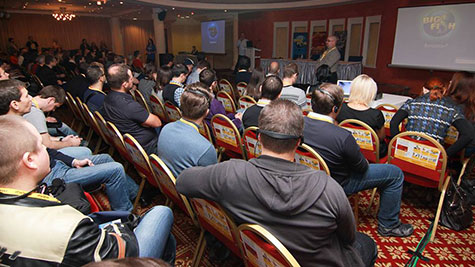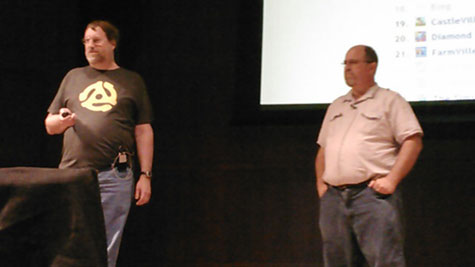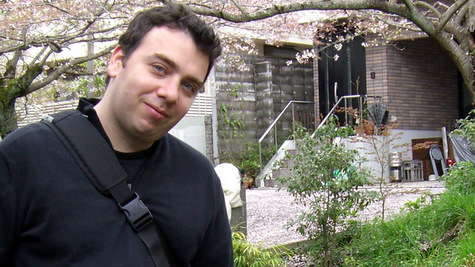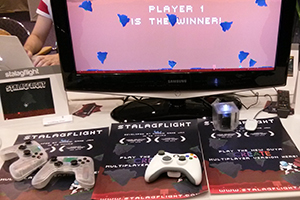In 2009, Turkey emerged as a compelling outlier in Facebook’s global social network audience. The male-dominated, primarily Islamic audience comprised nearly 75 percent of the total population of the country. Game companies the world over looked to this surprisingly vibrant online social market with avarice. While many knew that their Turkish players were a highly-engaged, low-cost component of their global mix, most viewed Turkish players as an interesting anomaly, but continued to pursue primarily North American and Western European players as their “core” money-making audience.
Most companies, but not Peak Games. The Peak Games’ founders clearly saw an underserved market opportunity in the active regional game audiences that had been deeply engaged in browser games from Gameforge and Bigpoint in the early 2000s, but now found themselves relegated to “2nd tier” status by the global social games market.
An “Emerging Markets” Success Story
Founded in November 2010, Co-Founder & CSO Rina Onur remembers a small team with a passion for games, but somewhat disillusioned with the inherent cultural disconnect caused by playing games made for someone else, somewhere else in the world. Armed with this and a singular focus on tailor-made games for their “home” audience, Rina and her partners pursued success in Turkey by making games for Turkish players, by Turkish developers.
Onur says, “We started by porting other people’s games, in particular variations on the ‘farms’ that were popular elsewhere in the world at the time.” Peak’s approach to the products went beyond simple localization of game text and UI, and instead pursued a true ‘re-culturalization’ of the product and content to make it more relevant to the unique experience and sensibilities of a Turkish player. It worked! Peak acquired more than 2 million DAU for this game and a very strong starting point for a big regional social games business.
At this point, Peak Games management reflected on the successes and shortcomings of that project. Rina and her team quickly realized that if they truly wanted to achieve a truely “local” game experience, they would need to start from scratch and build games from the ground up by investing in a grassroots game team to build games especially for Turkish players. Understanding through daily participation that players saw gaming as a social pastime centered around regionally popular “coffee house” games like Okey, 101, Tavla, and Batak. Peak decided to tap into this cultural behavior and let players do what they already loved, but online.
Coffee House Feeling
Historical fact: Coffee is culturally important to the Turks and the Middle East in general. Coffee (and the culture of coffee) was cultivated in this part of the world as far back as the 14th century…two hundred years or more before the drink was widespread in Europe.
Today, Peak Games dominates the Turkish parlor games genre generating sustainable and profitable growth across platforms with the most successful games bringing more than 50 percent revenue from mobile. With a strong focus on the parlor games genre (traditional and popular board, card and table-top games), Peak Games integrates the community feel of a coffee house into today’s screen-based social activities. The end result of this highly loyal and active community is a long and highly engaged player lifetime of many years leading to the sustained growth the company has shown since inception. “Peak Games has maintained its focus on community-based, multiplayer, synchronous games,” comments Onur.
Furthermore, Peak Games has begun to extend that success into the Middle East. However, their dedication to cultural knowledge, sensitivity, and awareness shows in their approach to this market as well. “The first things we did when we decided to approach Middle Eastern players was to open a new studio in Jordan and purchase another in Saudi Arabia,” Onur explains. “They only way to really understand the core motivations and requirements of a culture is to be a part of it.” Rather than simply re-purposing their existing game portfolio and targeting distribution in the Middle East, Onur and her team gave their Jordanian and Saudi teams free reign to develop services that were ‘just right’ for the audience they were meant to serve.
Thinking about Design
What kinds of things does a design team need to consider if they want to make culturally relevant games? The list is long, the thinking is deep, and the task is very difficult without inherent cultural knowledge. For example - Arabic is written right to left rather than left to right. So what? Unless your UI designers have done a great deal of study on the concept of “reading weight” and the assumptions of UI element importance that reading weight imposes upon the player, it’s unlikely your designer is likely to fully appreciate the awkwardness an Arabic-speaking player feels while using an interface designed with the top-left to bottom-right reading weight assumptions that are instinctual for someone who reads, say, English. Try playing your favorite game reflected in a mirror, and you can get a sense of this.
Even more difficult to grasp are the bone-deep perceptions and motivations learned over a lifetime of cultural immersion. Is anonymity especially monetizable in a culture where male/female public interactions are governed by strict social mores? How do broad class divisions impact the important of a sense of “fairness” in a multiplayer competitive game experience? What does “social” mean in a particular culture, in terms of topics, privacy, and communication features and how is this impacted by the reality and perception of freedom of speech?
In the end, Peak has proven that deep understanding of cultural sensibility is a critical competitive advantage when creating entertainment services like online games. Commenting on Peak Games growth, investment bank Digi-Capital’s Founder Tim Merel said, “Peak’s management team continues to drive them from strength to strength, capitalising on deep cultural connections and understanding of their core Turkey/MENA markets. Our experience is that synchronous multiplayer and mobile are key growth drivers for leading games companies globally. Peak’s strength in these markets positions them as one of the most valuable players in Turkey/MENA.”
About Peak Games
Peak Games is the largest and fastest-growing gaming company focused on the emerging markets of Turkey, Middle East and North Africa. Despite its regional focus, Peak Games ranks as one of the largest online and mobile gaming companies globally with 25 million monthly active users. A key to Peak Games’ success is its unrivaled expertise in creating and publishing games that are community-based, multiplayer, and synchronous. The company’s diverse portfolio includes game titles on Facebook and mobile platforms. Peak Games’ local talent hold deep expertise across gaming and high-tech industries. The company’s investors include Earlybird Venture Capital, Hummingbird Ventures, and Endeavor Catalyst.
Engage with Peak Games here:
Website: http://www.peakgames.net
Facebook: http://www.facebook.com/peakgames
Twitter: http://www.twitter.com/peakgames
For more information, please contact:
Nicole DeMeo +1(415) 533-2599 nicole@nicoledemeo.com












